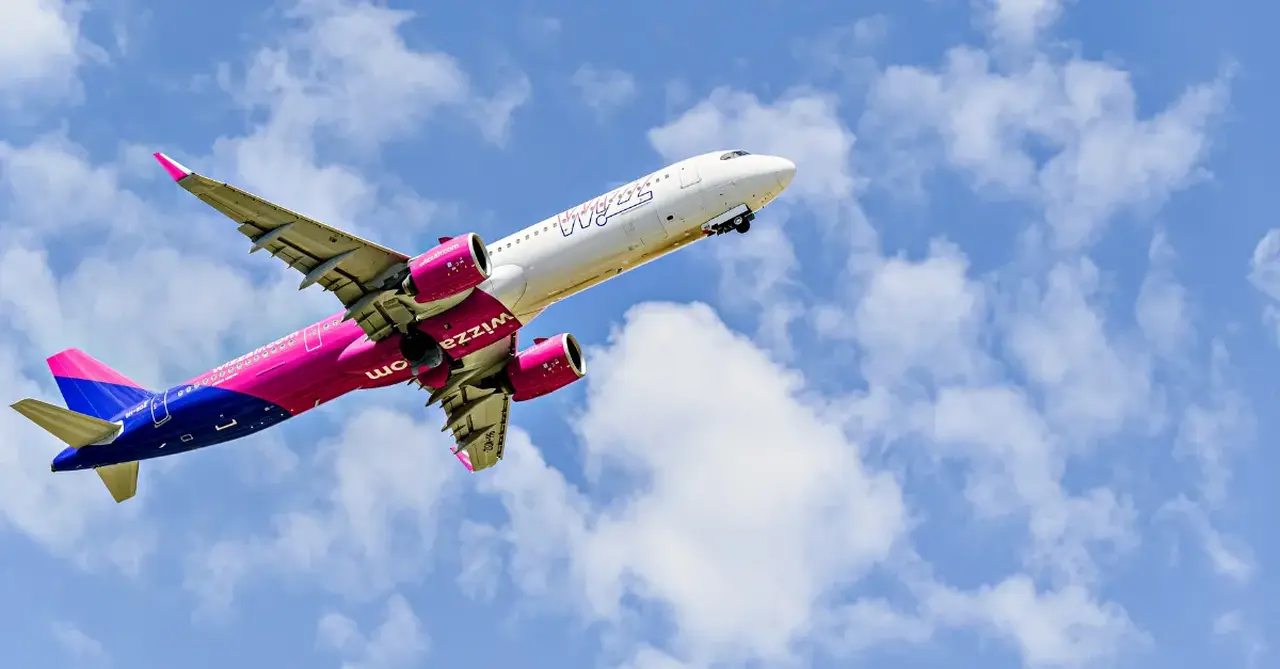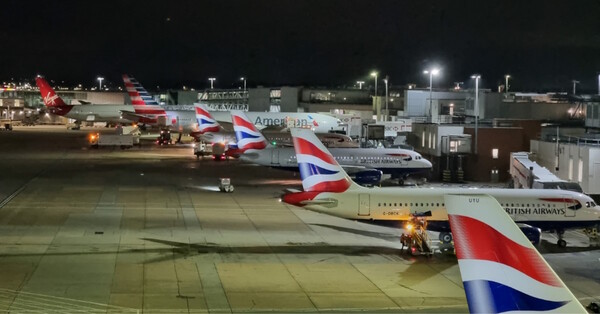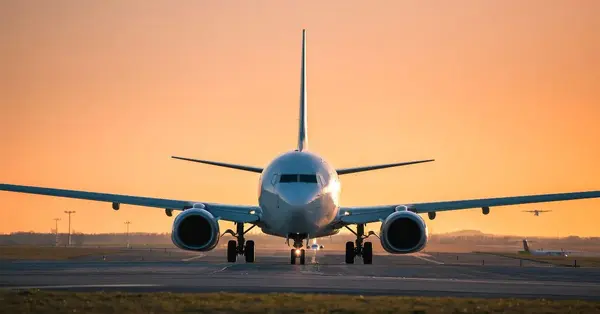You are viewing 1 of your 2 free articles
Analysis: What's behind Wizz Air's retreat from Abu Dhabi?
Ian Taylor examines why Wizz Air is retreating from Abu Dhabi while relaunching to a war zone
Wizz Air confirmed it will resume flights to Tel Aviv this Friday (August 8) and plans a full return of service to Israel, operating 24 routes to and from 11 countries including the UK “by mid-September”.
Joszef Varadi, Wizz Air chief executive, confirmed the resumption as the carrier released quarterly results for the three months to June last month, with the relaunch coming at the same time as the carrier shuts its base in Abu Dhabi and winds up operations in the Gulf.
Varadi told analysts that Israel is “as benign an operating environment as Europe” now despite no end to the war in Gaza and growing worldwide condemnation of the catastrophe afflicting more than two million Palestinians.
Rather, he suggested: “The situation has reached a level of calm.”
At the same time, Varadi confirmed: “We’ll be out of operating to Abu Dhabi by the end of August [and] cease operations in October. We’re refocussing on Central and Eastern Europe where we have market leadership, the economies are growing and we can stimulate the market.”
Wizz has 12 aircraft registered in Abu Dhabi. Four of these will be redeployed but eight grounded until at least Christmas, with Varadi admitting the airline would lose more money operating the aircraft than leaving them on the ground.
He conceded: “We don’t want to overstimulate the network with excess capacity.”
Grounded aircraft
The eight grounded Abu Dhabi-registered aircraft will add to the 41 Wizz aircraft already grounded due to problems with their Pratt & Whitney GTF [geared turbofan] engines.
The airline has suffered endemic problems with the engines on newer aircraft in its Airbus fleet owing to contaminants in the powdered metal used in making the engines. It had 46 aircraft grounded this time a year ago.
Varadi attributed the problems to operating in ‘hot and harsh’ environments such as Abu Dhabi and North Africa, telling analysts the airline’s future focus would be “more on comfortable environments” and less on those “hot and harsh”.
He noted “increasing operational challenges” in the past year, including “engine reliability constraints which impacted aircraft availability and operational efficiency” and said: “We’re receiving compensation from Pratt & Whitney, but it won’t cover the cost.”
Varadi acknowledged the move to Abu Dhabi had been a mistake, describing shutting the base as “eliminating an under-performing, low-yielding, loss-making operation”.
However, he insisted the operating environment had “changed significantly” since Wizz Air began flying to and from Abu Dhabi, arguing that “supply chain constraints, geopolitical instability, and limited market access made it increasingly difficult to sustain our original ambitions”.
’Geopolitical volatility’
Varadi argued the region’s “geopolitical volatility” had led to “repeated airspace closures and disruptions [and] weakening consumer demand” which along with “regulatory barriers” had “limited the company’s ability to access and scale in key markets”.
Circumstances may have changed, but Wizz Air might have done better to consider the obvious risks of investing in such an unstable region before now.
In reality, Varadi was set on an aggressive growth plan as the sector emerged from the pandemic and saw Abu Dhabi as a base and the region as a market in which the carrier could utilize its big aircraft orders and resulting overcapacity free from competition with Ryanair.
The Wizz Air chief said shutting Abu Dhabi “gets rid of underperforming business, creates capacity and management time and [allows us to] focus on investing in the market where the business does well”.
He said: “There were three main issues in Abu Dhabi – faster engine degradation due to the environmental conditions, geopolitical disruption and a changing regulatory climate with no access to key markets. We were locked out of India, the Gulf States and Saudi Arabia, without access to making money in those markets.”
However, Varadi insisted: “We remain upbeat about opportunities in the UK [where] our target markets are to North Africa.”
Inevitably, Wizz Air’s focus on rapid expansion and cutthroat cost reduction brought increased consumer complaints and sent the airline’s reputation lower than it was already which, in turn, drew the attention of regulators.
CAA action
The Civil Aviation Authority (CAA) took unprecedent enforcement action against Wizz in July 2023 over the carrier’s serial failure to honour its legal obligations to passengers whose flights had been delayed or cancelled.
The airline was forced to give legal undertakings to honour its commitments in future, to review all the passenger compensation claims it had received in the previous 16 months and, in an unprecedented move, to re-open passenger claims extending back six years.
The CAA noted it had acted after receiving hundreds of complaints – the most relating to a single airline it had ever received – and cited multiple examples of Wizz’s failure to pay-out on legitimate claims.
The regulator found Wizz failed to provide alternative flights when services were delayed or cancelled, failed to provide care and assistance to delayed passengers, significantly delayed dealing with claims and wrongly rejected claims.
The CAA warned it would monitor the airline’s compliance and future behaviour, making clear that any further steps would involve court action. Earlier, it had noted Wizz “ranked as clearly the worst airline for complaints”.
Wizz sought to draw a line under the issue, making payments to more than 6,000 passengers and re-examining another 25,000 claims in the six months to January 2024.
Yet in February this year, the airline was slammed by consumer publication Which? after a survey of consumer attitudes to airlines ranked it equal bottom with Ryanair among short-haul carriers. Rather than apologise to passengers and detail how it planned to put things right, Wizz accused Which? of “again misleading the public”.
The carrier reported a near 11% increase in passengers year on year in the April-to-June quarter, with revenue up 13% and a profit of €38 million up just €1 million a year earlier.
However, Varadi conceded Wizz had underperformed “compared to the market and to other airlines”. Indeed, it has.

















